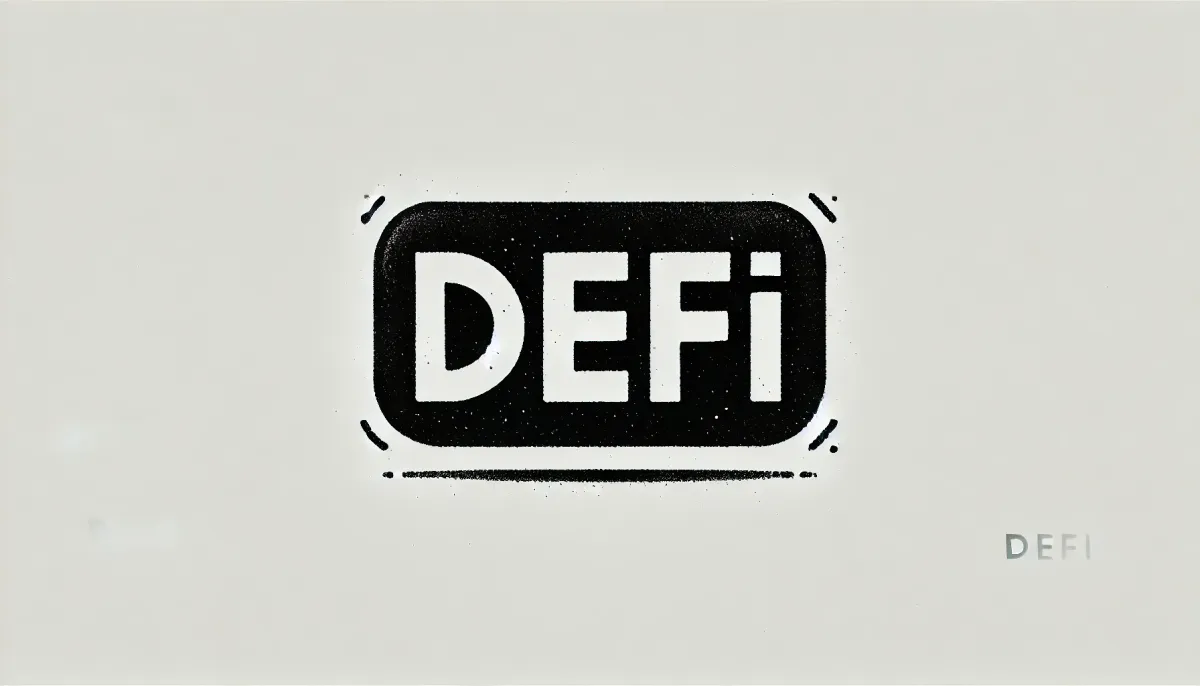Introduction: The Need for Alternatives in Finance
Traditional finance, dominated by banking institutions and capital markets, forms the backbone of the global economy. It powers businesses, governments, and individuals. But for practicing Muslims, these conventional systems often present ethical dilemmas rooted in Islamic finance principles, particularly surrounding Riba (interest), which is prohibited under Shariah law.
Muslims face a systemic problem when it comes to accessing financial services. The banking industry relies heavily on interest-based loans and transactions—practices explicitly forbidden in the Qur'an. Furthermore, modern banking practices like fractional reserve banking—where banks lend out more money than they actually hold in deposits—raise additional concerns. In light of these, decentralized finance (DeFi) has emerged as a potential alternative. Could it offer a path for Muslims to engage in finance while adhering to Islamic law?
Understanding Traditional Finance: The Core Problems
To appreciate the potential of DeFi, it’s important to first understand the mechanics of the traditional finance system, and why its foundational principles conflict with Islamic finance.
1. The Concept of Riba and Modern Banking
One of the most fundamental tenets of Islamic finance is the prohibition of Riba, often translated as interest or usury. Islam encourages fair transactions and wealth creation through legitimate trade, services, and risk-sharing. Charging or paying interest, however, is seen as exploitative and unfair. The rich get richer simply by owning capital, while the borrower shoulders the risk without shared responsibility.
In the conventional banking system, interest is the bedrock of most financial products—from mortgages and personal loans to savings accounts. For example, when you take out a loan from a bank, you are expected to pay back the principal along with interest, which is predetermined and non-negotiable. This creates a system where profit is derived from money itself, rather than from trade or investment in productive assets.
2. Fractional Reserve Banking: Risks and Ethical Concerns
Another issue in traditional banking is fractional reserve banking. In this system, banks are only required to keep a small fraction of their total deposits in reserve (usually around 10%), while the rest is lent out. This means that banks can lend out far more money than they actually possess in cash, essentially creating money out of thin air.
This process raises two ethical concerns in an Islamic context:
- Leverage and Risk: The fractional reserve system creates leverage, multiplying the risk in the financial system. If too many loans go bad, the entire banking system could collapse, as seen during the 2008 financial crisis. Islamic finance promotes transparency, equity, and real asset-backed transactions, which is the opposite of the opaque and highly leveraged practices in modern finance.
- Creation of Money from Nothing: The idea of creating money that doesn't have an underlying asset or value goes against the Islamic principle of fairness. In a fractional reserve system, banks profit from money they don't actually have, which could be seen as a form of unjust enrichment.
3. Economic Inequality and Financial Exclusion
Traditional finance often works best for those who already have wealth. Wealth inequality, fueled by interest-based systems, continues to grow. Islamic finance aims to bridge this gap by promoting fairness, risk-sharing, and mutual benefit. In contrast, traditional banking can lead to the concentration of wealth in fewer hands, excluding large populations from accessing fair financial services.
For Muslims, these systemic issues make it difficult to fully participate in the global financial system without compromising on religious principles. This is where DeFi (Decentralized Finance) enters the conversation.
What is DeFi?
DeFi, or decentralized finance, refers to a movement that aims to reconstruct financial systems using blockchain technology. Unlike traditional banking, DeFi operates without central authorities like banks or governments. Instead, it leverages smart contracts on blockchains (like Ethereum) to enable financial transactions directly between users, bypassing intermediaries.
Key Features of DeFi:
- Decentralization: DeFi removes the need for a central authority (such as a bank or credit institution). All transactions happen on a decentralized blockchain network, where they are transparent, secure, and auditable.
- Smart Contracts: These are self-executing contracts where the terms of the agreement are written directly into code. Once certain conditions are met, the contract is automatically executed without any human intervention.
- Transparency: DeFi operates on public blockchains, meaning that all transactions are visible to anyone. This transparency helps promote trust, a key component of Islamic finance, which emphasizes fairness and honesty in trade.
- Global Accessibility: DeFi platforms are accessible to anyone with an internet connection, reducing barriers to entry. In contrast to traditional finance, which often requires formal identification and high credit scores, DeFi can empower those who have been marginalized by the existing financial system.
How DeFi Aligns with Islamic Finance Principles
DeFi’s fundamental attributes—transparency, peer-to-peer transactions, and the absence of centralized control—may align well with several core principles of Islamic finance.
1. Avoiding Riba
One of the standout features of DeFi is that it doesn’t inherently require the charging of interest (Riba). DeFi applications can be designed to focus on profit-sharing, trade-based finance, or investment in productive assets—all of which are acceptable under Islamic law.
For instance, instead of earning fixed interest, users on a DeFi platform could participate in profit-sharing agreements similar to Mudarabah, an Islamic financial contract where one party provides capital and the other provides expertise to generate profits, which are then shared.
2. Transparency and Trust
The transparent nature of blockchain technology ensures that all participants have access to the same information. This is critical from an Islamic perspective, which emphasizes honesty and transparency in financial transactions. Each transaction on a DeFi platform is recorded immutably on the blockchain, meaning it cannot be altered or hidden.
In contrast to the often opaque nature of traditional banking, where customers may not fully understand the risks they are exposed to (as with fractional reserve banking), DeFi platforms offer full transparency of the code and processes governing financial products.
3. Risk-Sharing and Fairness
Islamic finance emphasizes equity-based transactions, where risk is shared among all parties. Unlike conventional finance, which transfers risk primarily to borrowers, DeFi can be structured to mirror Islamic finance contracts such as Musharakah (joint ventures) or Murabaha (cost-plus financing).
For example, in a DeFi-based Musharakah contract, participants could pool their resources to finance a project, sharing both the profits and losses. This structure promotes fairness and mutual benefit, which are key Islamic principles.
4. Avoiding Speculation (Gharar)
One area where DeFi could potentially conflict with Islamic finance is in its speculative nature. Many DeFi platforms offer products like yield farming or liquidity mining, where users earn tokens in exchange for providing liquidity. These practices can sometimes involve high levels of risk and speculation, akin to gambling (Maisir) or uncertainty (Gharar), both of which are prohibited in Islam.
However, by carefully selecting DeFi projects that prioritize real asset-backed investments and avoid excessive speculation, Muslims can participate in this new financial frontier without violating Islamic principles.
The Potential of DeFi for Muslims
DeFi holds enormous potential to revolutionize how Muslims engage with finance. By offering Shariah-compliant alternatives to interest-based financial products, DeFi could enable Muslims to participate in the global economy while adhering to their religious beliefs.
1. Financial Inclusion
DeFi can provide financial services to the unbanked. Many Muslims, especially in countries with underdeveloped banking infrastructure, struggle to access traditional financial services. DeFi can help bridge this gap by offering a decentralized, global platform that anyone can access, regardless of their geographic location.
2. Ethical Investment Opportunities
The transparency and programmability of smart contracts allow for the creation of ethical investment products tailored to Islamic finance principles. Muslim investors can confidently engage in DeFi knowing that their money is being used in ways that align with their values.
3. Disrupting the Riba System
Perhaps the most significant advantage of DeFi is its potential to offer a way out of the Riba-based global financial system. By enabling direct, peer-to-peer transactions and creating financial products that don’t rely on interest, DeFi could help Muslims escape the interest-driven mechanisms of traditional finance.
Challenges and Considerations: Is DeFi Truly Halal?
While DeFi holds great promise, it is important to approach this emerging field with caution. Not all DeFi products are inherently Halal, and there are several key issues to consider:
- Speculative Practices: Some DeFi platforms encourage high-risk, speculative behavior, which can border on gambling (Maisir). Muslims must avoid these projects and seek out those that are based on real, productive assets.
- Lack of Regulation: The decentralized nature of DeFi means that it currently operates in a largely unregulated space. While this can promote innovation, it also opens the door to fraud and unethical behavior. Users must perform due diligence to ensure that the projects they engage with are both Shariah-compliant and reputable.
- Volatility: The cryptocurrencies that power DeFi platforms are often highly volatile. Islamic finance emphasizes stability and the avoidance of unnecessary risk. Muslims engaging with DeFi should be cautious of this volatility and focus on long-term, asset-backed investments.
Conclusion: A Path to a Shariah-Compliant Financial Future?
Decentralized Finance (DeFi) offers an exciting alternative to the traditional, Riba-driven financial system. With its focus on transparency, fairness, and risk-sharing, DeFi aligns with many core principles of Islamic finance. However, it is essential to navigate this space with caution. Not all DeFi products are created equal, and some may engage in practices that are prohibited in Islam, such as speculation and gambling.
For Muslims, DeFi represents an opportunity to participate in the global economy without compromising on religious principles. By carefully selecting Shariah-compliant DeFi platforms, Muslims can break free from the Riba-based financial system and move toward a more just and equitable economic future.


